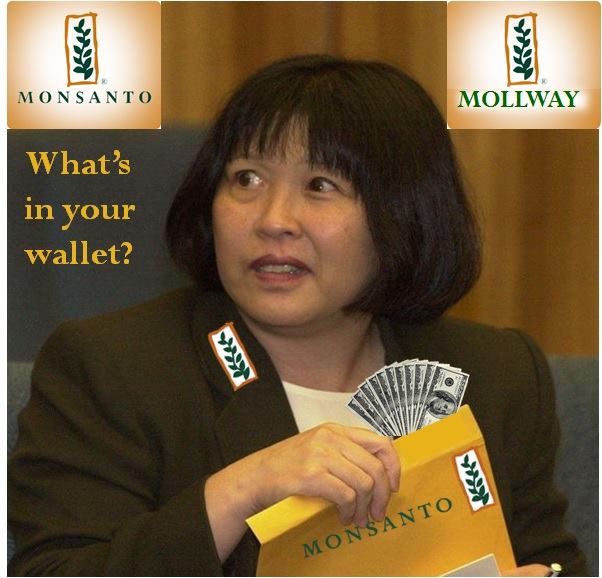Federal Judge Rules Maui County Ban on GMO Crops Invalid

HONOLULU — Jun 30, 2015, 8:11 PM ET By AUDREY McAVOY Associated Press Plus More
A federal judge says a ban by Maui County on the cultivation of genetically engineered crops is pre-empted by federal and state law and invalid.
U.S. District Court Judge Susan Oki Mollway said in a ruling Tuesday that the ordinance creating the prohibition exceeds the county’s authority.
Maui County spokesman Rod Antone says the county will abide by the judge’s ruling.
Mollway emphasized that the ruling is not a statement on whether genetically modified organisms are beneficial or detrimental.
“The court recognizes the importance of questions about whether GE activities and GMOs pose risks to human health, the environment, and the economy, and about how citizens may participate in democratic processes,” she said. “But any court is a reactive body that addresses matters before it rather than reaching out to grab hold of whatever matters may catch a judge’s fancy because the matters are interesting, important, or of great concern to many people.”
“The court stresses again, so that no lay party has any misapprehension on this point, that it is ruling purely on legal grounds. No portion of this ruling says anything about whether GE organisms are good or bad or about whether the court thinks the substance of the Ordinance would be beneficial to the County.”
Maui voters passed the ordinance when they approved a ballot initiative last November. The measure imposes a moratorium on the growing of genetically engineered crops until scientific studies are conducted on their safety and benefits. The ordinance would only allow the moratorium to be lifted after a vote by the Maui County Council.
Mark Sheehan, one of five citizens who sponsored the ballot initiative, said his group will appeal the order. He expressed disappointment that Mollway ruled on what he called procedural issues instead of addressing the substance of their argument.
He said the ordinance was specifically written to address issues not found in state statue. Further, he said the law requires the county to protect the health of the environment and the public, said Sheehan, who is a member of the group Sustainable Hawaiian Agriculture for the Keiki and the Aina Movement, or SHAKA.
“That was lost on the judge, so we will have to move along and have to find justice for the constitutional rights of the people of Maui at another level,” he said.
Hawaii’s year-round warm weather makes the islands a favorite research spot for companies that use genetic engineering to develop new types of corn and other crops. The weather allows researchers to grow more generations of crops and accelerate their development of new varieties.
Monsanto has two farms in Maui County, on Maui and Molokai islands. Agrigenetics, which does business as Mycogen Seeds, has a farm on Molokai.
There has been little scientific evidence to prove that foods grown from engineered seeds are less safe than their conventional counterparts. But fears persist in Hawaii and elsewhere. In the islands, these concerns are compounded by worries about the companies’ use of pesticides.
The measure imposes a moratorium on the growing of genetically engineered crops until scientific studies are conducted on their safety and benefits. The ordinance would only allow the moratorium to be lifted after a vote by the Maui County Council.
Monsanto Co. and Dow Chemical Co. unit Agrigenetics Inc. have farms in the county to research genetically engineered crops.
Maui’s right to know if Monsanto and Dow really are killing us has been Pre-empted by the long tentacles of Corporate Greed and Corruption. It’s on to appeals.


